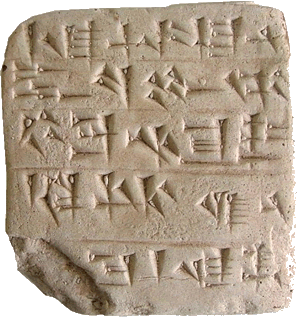Hittite was spoken north-central Anatolia (part of modern Turkey) and is generally classified as belonging to the Anatolian branch of Indo-European languages. Written records of Hittite date from between the 16th and 13th centuries BC, and it is the earliest Indo-European to appear in writing.
Hittite was written with a cuneiform script adapted from a version of Akkadian cuneiform from northern Syria and was deciphered during the early 20th century mainly by Bedřich Hrozný, with contributions by Jørgen Alexander Knudtzon, and Hugo Winckler, who discovered many tablets written in Hittite at the village of Boğazköy in Turkey.


Source: http://historicconnections.webs.com/biblicalarchaeology.htm
Information about the Hittite language and writing system:
http://www.utexas.edu/cola/centers/lrc/eieol/hitol-0-X.html
http://en.wikipedia.org/wiki/Hittite_language
Hittite dictionary
http://thevore.com/hittite/
Cuneiform fonts
Carian, Hittite, Lycian, Lydian
Akkadian, Elamite, Hittite, Old Persian Cuneiform, Sumerian, Ugaritic
Page last modified: 07.01.22
[top]
You can support this site by Buying Me A Coffee, and if you like what you see on this page, you can use the buttons below to share it with people you know.

If you like this site and find it useful, you can support it by making a donation via PayPal or Patreon, or by contributing in other ways. Omniglot is how I make my living.
Note: all links on this site to Amazon.com, Amazon.co.uk
and Amazon.fr
are affiliate links. This means I earn a commission if you click on any of them and buy something. So by clicking on these links you can help to support this site.
[top]